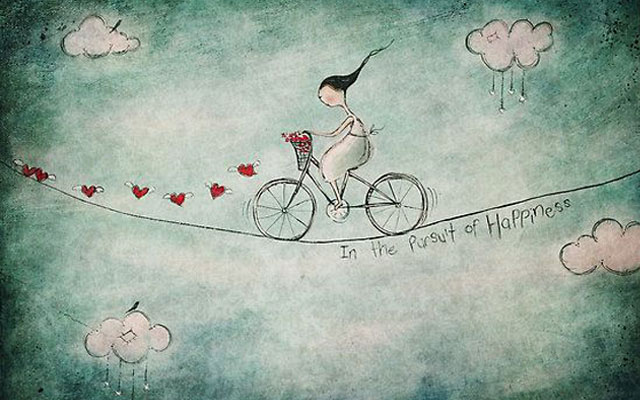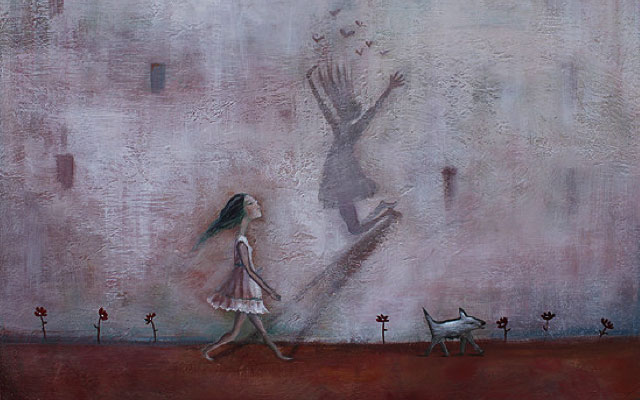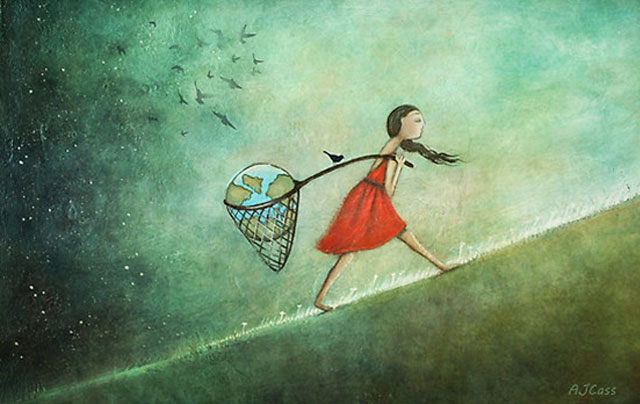
How to be happy?
Where?
With whom?
When do we get happy?
The question is asked as long as we are alive. We do evaluations and measurements of our happiness; then we may occasionally reach a conclusion : somewhat happy, sometimes happy, more or less happy, in the past or present, or will be in the future… We remember the last time we were happy, or it happens that we fantasize a possible future happiness.
Sometimes we measure with what we have, sometimes we measure it as an extent of our expectations being fulfilled or just obtaining what we desire. We consider our happiness guesses along with our goals. It is like an equation of balance, the result of which predicts our happiness level.
Robert Frost refers to this calculation as follows:
Happiness makes up in height for what it lacks in length.

Happiness is contentment for some, and gratitude for others. The meaning of which starts with seeing the good in everybody and in everything that happens to us. In fact, this is a realistic approach. In contrast to a person who is deprived of seeing the good, this approach has the possibility of capturing more of the whole. Consequently one has a higher chance to be content. The quality of our thoughts and mindset directly influences the level of our happiness and so do our actions. Usually all moments of happiness involve some kind of action.
Philosophy, ontology, spirituality and psychology all emphasize and discuss the subject of happiness. In Greek philosophy, “Eudemonia ” is used for happiness together with “Aretê ” meaning virtue. According Democritus:
Happiness, lies in the soul, not in the possessions.
For Socrates:
Virtue is the means for the goal of happiness. A virtuous person tries to advance spiritually whereas the happy person feels the advancement.
Aristotle defines happiness with these words:
As it is not only one sparrow or one fine day which makes spring, it is not a moment or one short day that makes happiness.
Research conducted in psychology defines happiness beyond the hedonistic pleasures; a life lived in accord with one’s values and goals. As long as a person has one or more goals to work for in life, he is opt to find meaning and be happy says Martin Seligman, known with his books on positive psychology. On the other hand, the way we approach what happens in life also affects our happiness. Lyubomirsky‘s research findings show the components of happiness as follows :

50 % genetics
10 % circumstances
40 % intentional
By positively furnishing our intention and thought, we can increase our happiness by 40% at any moment !
Rumi, the timeless poet wisely recites how to maintain happiness across the wheel of time :
Keep your heart pleasant, patience attains
For the lovers’ prayer holds everywhere
While unhappiness does not remain but pass
Have no doubts –the wheel of fortune turns
Duygu Bruce







